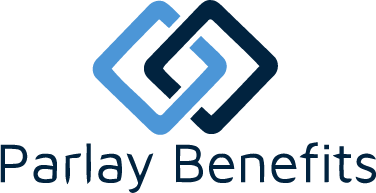An HSA is a tax-advantaged benefit account for people enrolled in a high-deductible health plan (HDHP). You can make pre-tax contributions each payday in order to pay for IRS-approved eligible expenses for yourself and your dependents.
HSA Basics
What is an HSA?
It’s an individual account designed to work together with an HSA-eligible high-deductible health plan (HDHP). Eligible contributions are tax-deductible, and you can use your HSA money tax-free to pay for qualified medical expenses for you, your spouse, and your qualified dependents. You can choose to invest some or all of your HSA money for potential growth to help pay for qualified medical expenses in retirement. If it grows, that growth is also tax-free. Plus, your HSA is not “use-it-or-lose-it”—the account belongs to you, and your contributions can accumulate year after year.
Is an HSA different from an FSA?
Yes. HSA money is not “use-it-or-lose-it,” unlike FSAs, and your entire HSA balance carries over from year to year, forever. In general, HSAs cover a broader variety of qualified medical expenses than FSAs.1 Also, FSAs are generally sponsored by your employer, while your personal HSA is a brokerage account owned by you. That means your HSA is always yours, even if you change employers or move to a different state.
What are the tax benefits for HSAs?
HSAs are tax-advantaged in three ways. First, personal HSA contributions using after-tax money may be federal income tax-deductible. If you have an HSA through your employer, you can make pre-tax payroll contributions—this type of contribution saves more on taxes than tax-deductible after-tax contributions.2 Second, spending your HSA money on qualified medical expenses is free of federal income taxes. Third, if you invest some or all of your HSA money, any growth is also tax-free.
Can my spouse and my dependents use my HSA?
Yes. You, your spouse, and your eligible dependents can all use your HSA money to pay for qualified medical expenses as long as everyone meets eligibility requirements and you, the account owner, have authorized each of them by requesting an additional HSA debit card in their name.
How do I know if I’m eligible for an HSA?
You’re eligible to open and contribute to an HSA if:
- You’re covered by an HSA-eligible health plan on the first of the month
- You’re not covered by an ineligible health plan
- You’re not enrolled in Medicare
- You cannot be claimed as a dependent on someone else’s tax return
What happens to my HSA if I change jobs or leave my company?
Your HSA and your balance are always yours, even if you change employers or move to another state. You can contribute to your HSA—even an HSA offered by your previous employer—as long as you continue to meet eligibility requirements. Even if you become ineligible to contribute to your HSA, you can spend your HSA money tax-free for qualified medical expenses at any time, including through retirement.
Is there a minimum I must contribute to my HSA each year?
There is no minimum for annual contributions to your HSA.
How do I access my HSA Funds?
You will receive a Mastercard debit card that is linked to your HSA account. This is a limited purpose Mastercard that is coded for medical providers only. Swipe the card just as you would any other credit card. The card lets you cover qualified medical expenses without having to pay out of pocket first and then wait for reimbursement.
